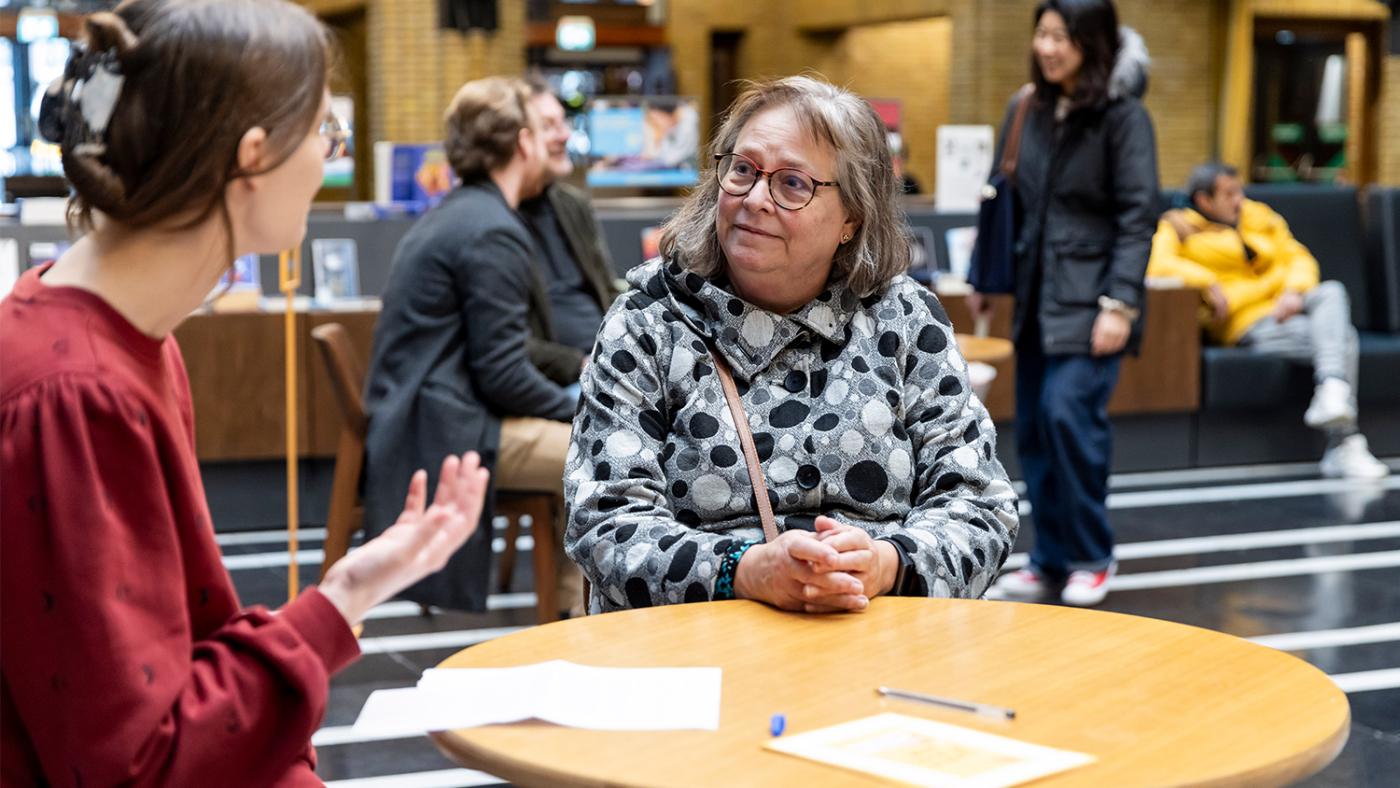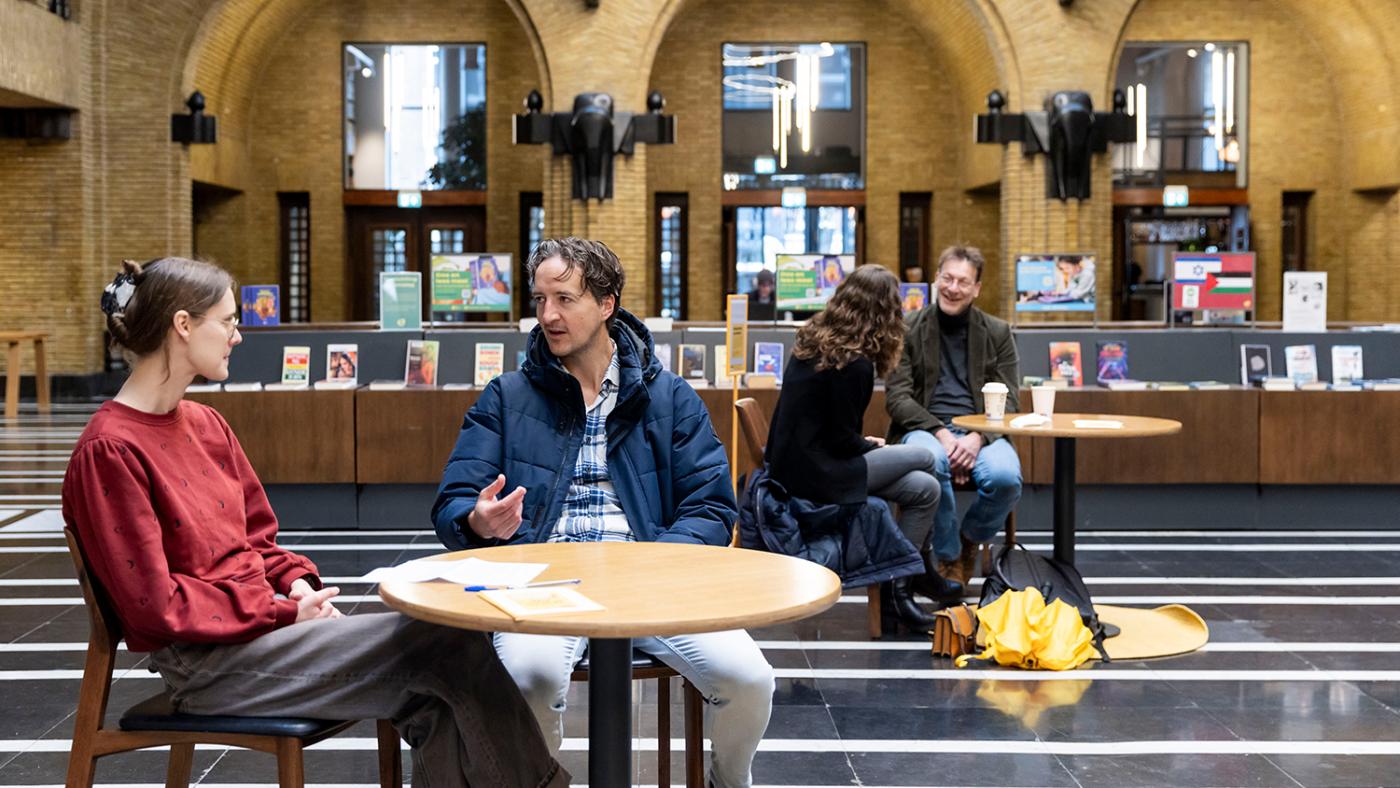Scientists around the city
New initiative aims to bridge the gap between UU and society

The city centre is the first place where UU scientists will introduce themselves to passers-by and explain their research. In the second week of December, they will be at the Town Hall and the Hoog Catharijne mall. Next year, the programme will be expanded to the entire Utrecht region.
According to the organisers, such a programme is necessary. Yuri Voesenek, who is involved in the organisation, says that both the media and politicians are talking about a growing gap between academia and society. He observes that, in times of climate deniers and conspiracy theorists, influencers are sometimes perceived to have as much authority as scientists. He believes that the programme, through which the university seeks to connect with all Utrecht residents, is very timely.
Not the first time
This is not the first time the university has done something like this. A similar programme titled Even over Morgen (A Little Bit About Tomorrow) has been done previously. According to the project manager of the current programme, Lieke Dekker, Even Over Morgen was not accessible enough, and it involved collecting questions for the Utrecht Science Agenda. This time, the programme focuses on establishing a mutual acquaintance between scientists and non-scientists.
The organisers carefully considered how the two would meet. Visitors to the library will practically bump into the researchers when they walk in. A host will also facilitate the contact between the two. The goal is to lead them into spontaneous, even unexpected, conversations, Dekker explains. Scientists who sign up for the programme will be coached in advance so they can explain their research in a way that everyone understands.
Two-way street
Library visitors are not the only ones learning from these conversations. The scientists gain new insights as well, as evidenced by Pascale van Zantvliet. She is researching the process of collaborative learning and how to address different perspectives in educational contexts. One of the people she spoke to asked whether language also influenced this process, an angle she had not considered much before. She also spoke to several people with whom she would not normally be in touch.
One visitor, with a background in Computer Science, was able to reproduce in detail the research of the scientist he had spoken to. The research in question concerned the advantages and disadvantages of artificial intelligence. He gained more insight into AI research and was very satisfied with the meeting.
The university also asks visitors about their experience, which also helps the organisers learn. After the conversation, they are given a simple form with four yes/no questions: Were they listened to? Had they spoken to someone from the university before? Did they find the conversation interesting? Do they now know what researchers do?
The organisers hope that the answers to these questions will give them a clear insight into whether these conversations are effective in bringing society and academia closer together.

Comments
We appreciate relevant and respectful responses. Responding to DUB can be done by logging into the site. You can do so by creating a DUB account or by using your Solis ID. Comments that do not comply with our game rules will be deleted. Please read our response policy before responding.